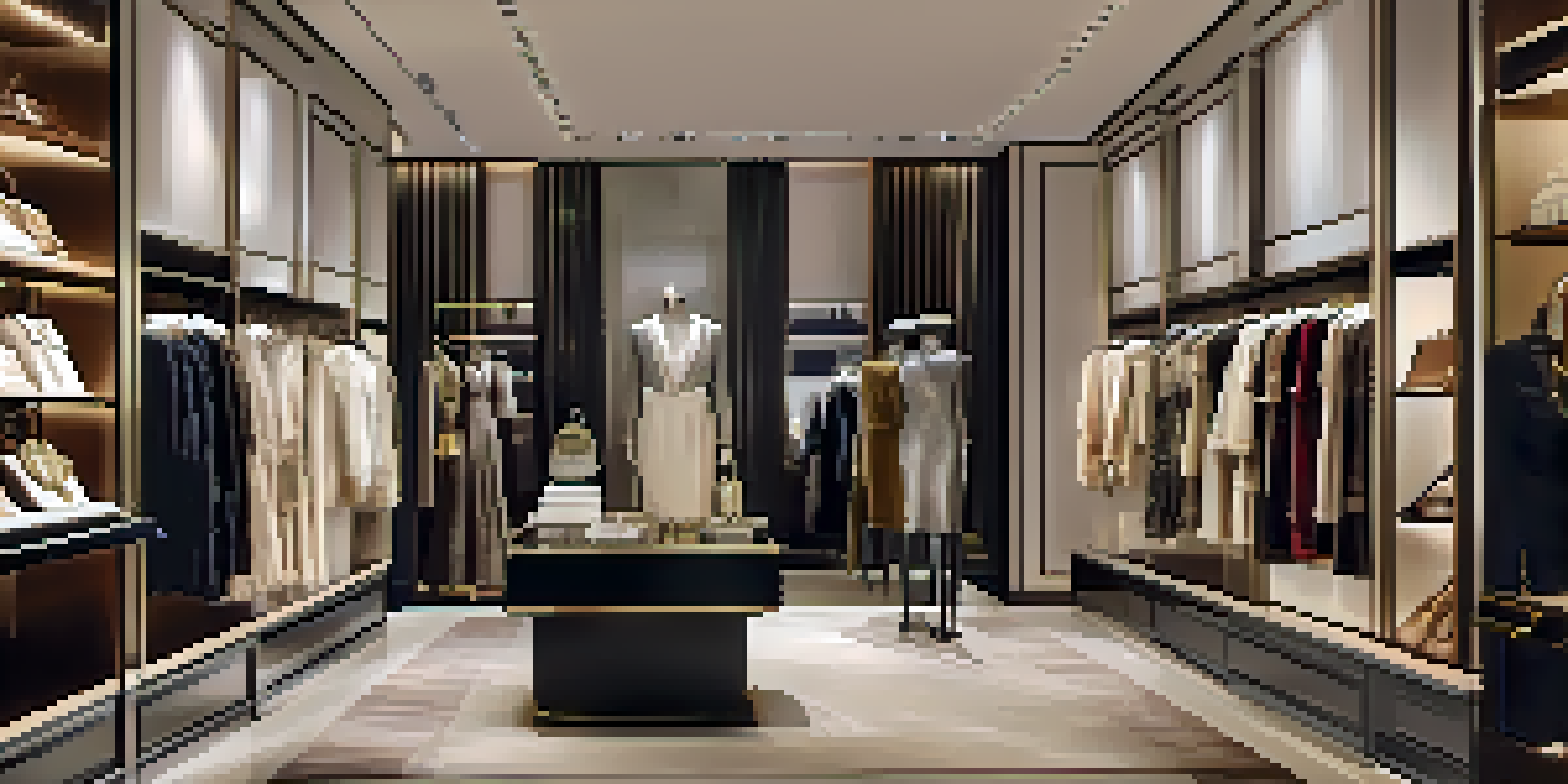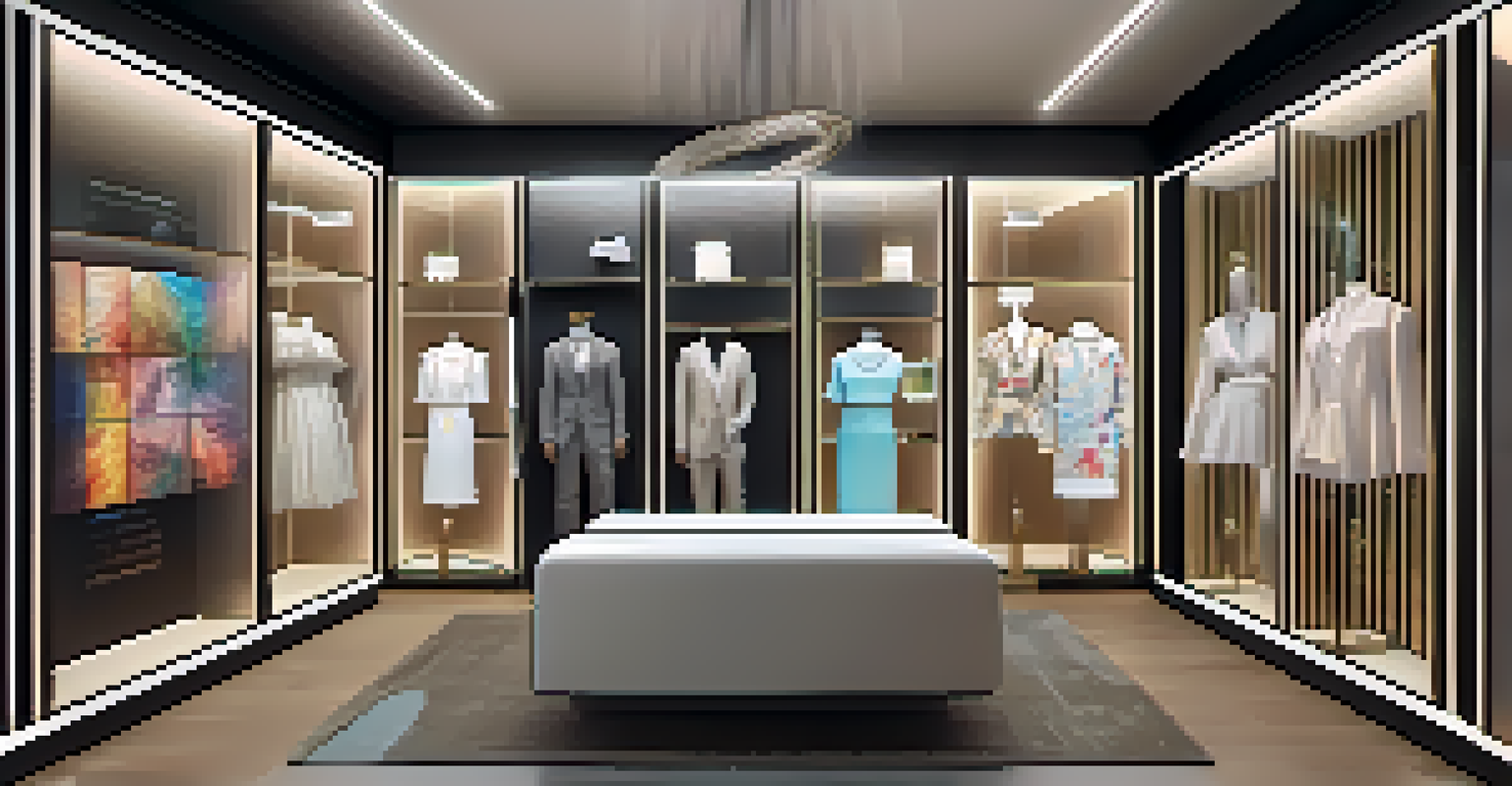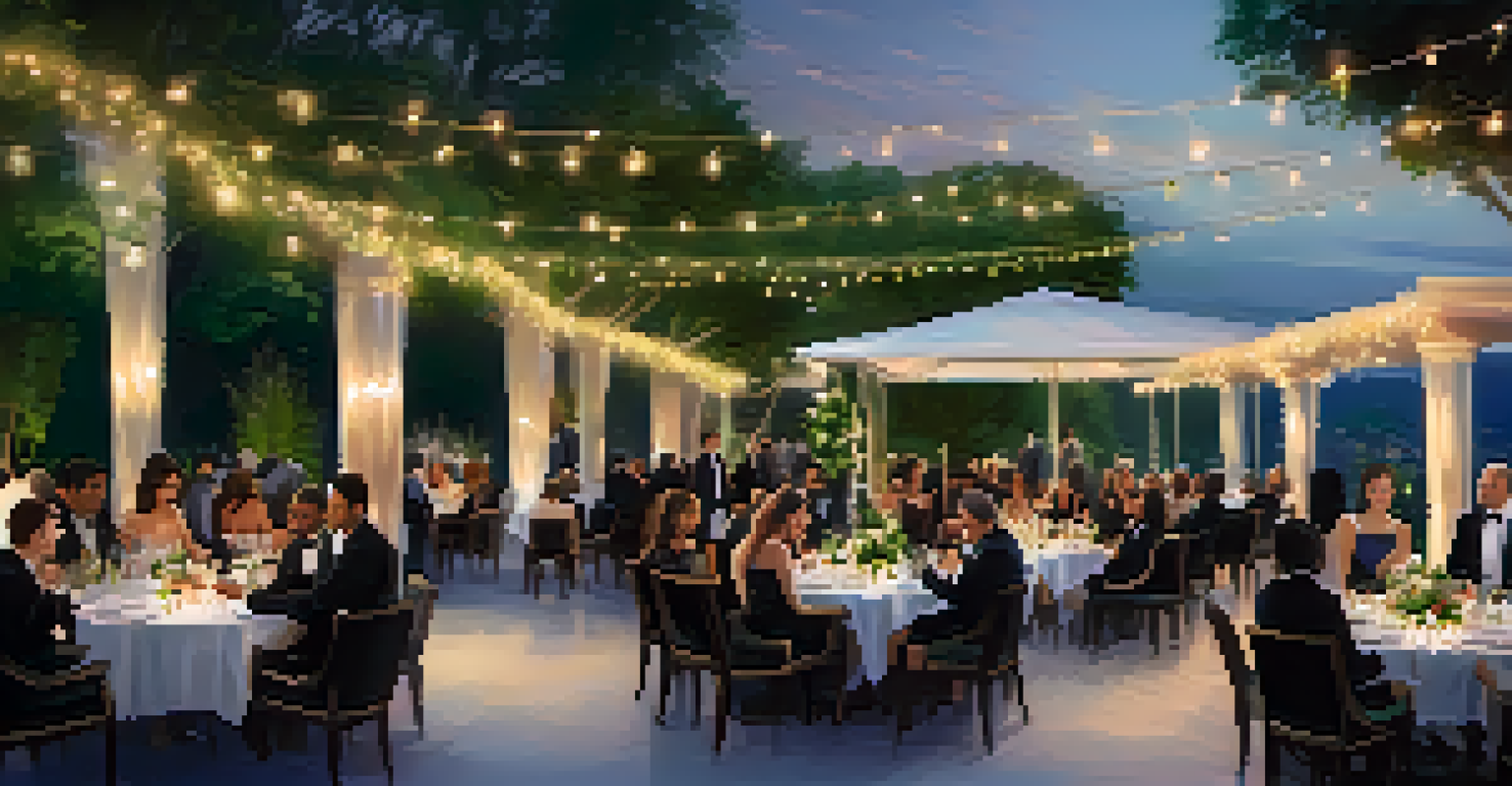Personalization in Luxury: Digital Experiences That Dazzle

What is Personalization in Luxury Experiences?
Personalization in luxury refers to tailoring experiences to individual preferences. In a world where consumers crave uniqueness, luxury brands are stepping up their game by offering customized services. This could range from bespoke products to personalized shopping experiences that cater to the specific tastes of each customer.
Personalization is not a trend, it's a new standard in luxury experiences.
For example, a high-end fashion retailer might offer personalized style consultations that take into account a client's past purchases and preferences. This approach not only makes customers feel valued but also fosters deeper brand loyalty. It’s about creating a relationship where the customer feels understood and appreciated.
Ultimately, personalization transforms the typical shopping experience into a memorable journey. When customers feel that their needs are being met in a unique way, they are more likely to return and share their experiences with others. This is particularly important in the luxury sector, where word-of-mouth can be a powerful marketing tool.
The Role of Data in Crafting Personal Experiences
Data plays a crucial role in personalization, allowing brands to understand customer behavior and preferences. By analyzing purchase history, browsing patterns, and social media interactions, luxury brands can curate experiences that resonate with individual consumers. This data-driven approach helps brands predict what a customer might want before they even ask for it.

Imagine walking into a luxury boutique and finding items already selected for you based on your previous visits. This level of insight not only streamlines the shopping process but also enhances the thrill of discovery. It’s about making customers feel like they have a personal shopper dedicated to their tastes.
Personalization Elevates Luxury Brands
Tailoring experiences to individual preferences fosters deeper brand loyalty in the luxury sector.
However, it’s essential for brands to handle data responsibly. Transparency about data usage builds trust, ensuring customers feel comfortable sharing their information. When done right, the combination of data and personalization can create a seamless and enjoyable luxury experience.
Digital Tools Enhancing Personalization in Luxury
Today, luxury brands are leveraging various digital tools to enhance personalization. From AI-driven chatbots that provide instant support to virtual reality (VR) fitting rooms, technology is transforming how consumers engage with luxury products. These tools facilitate a more interactive and tailored experience.
The future of luxury is about creating unique experiences that reflect individual preferences and values.
For instance, a luxury car brand might use augmented reality to let customers customize vehicles with different colors and features in real-time. This not only makes the buying process fun but also allows customers to visualize their unique choices before making a purchase. It’s a perfect blend of technology and personalization.
Moreover, apps that track customer preferences can send tailored recommendations and exclusive offers directly to users. The more engaged the customer feels with the brand, the more likely they are to become repeat buyers. Digital personalization thus becomes a key driver of both customer satisfaction and brand loyalty.
Creating Exclusive Content Tailored to Customers
Luxury brands are increasingly creating exclusive content tailored specifically for their most valued customers. This can include personalized newsletters, style guides, or even behind-the-scenes looks at new collections. Such content not only keeps customers informed but also fosters a sense of belonging and exclusivity.
An example of this could be a luxury travel company offering personalized travel itineraries based on past trips and preferences. By sharing unique travel experiences that resonate with individual clients, the brand reinforces its commitment to personalized service. Customers feel special knowing their preferences are prioritized.
Data Drives Tailored Customer Experiences
Analyzing customer behavior through data helps luxury brands anticipate needs and enhance shopping journeys.
Additionally, exclusive online events, such as virtual fashion shows or product launches, can further enhance this personalized approach. When customers are invited to these exclusive experiences, it strengthens their connection to the brand, making them feel like they are part of an elite circle.
The Importance of Seamless Omnichannel Experiences
For luxury brands, providing a seamless omnichannel experience is vital in delivering personalized services. Customers today engage with brands across various platforms—be it online, in-store, or through mobile apps. Ensuring that their preferences are recognized, regardless of the channel, is crucial for maintaining engagement.
Imagine a customer who browses a luxury watch website, adds items to their cart, but then decides to visit the physical store. If the staff is already aware of their interests and preferences, it creates a cohesive and personalized shopping experience. This continuity reinforces the brand's commitment to exceptional service.
Furthermore, leveraging technology like Customer Relationship Management (CRM) systems can help brands track interactions across different channels. By doing so, they can ensure that each touchpoint reinforces the personalized experience, ultimately leading to higher customer satisfaction and loyalty.
Harnessing Social Media for Personalization
Social media is a powerful tool for luxury brands to engage with customers on a personal level. Platforms like Instagram and Facebook allow brands to showcase their products while interacting directly with their audience. This direct engagement can help brands tailor content based on customer feedback and preferences.
For instance, luxury jewelry brands might encourage customers to share photos of their purchases, creating a community around their products. By featuring these customer stories, brands not only highlight their products but also make customers feel valued and part of the brand’s narrative. It’s a win-win situation.
Technology Transforms Luxury Interactions
Digital tools like AR and AI create immersive, personalized experiences that engage customers at every touchpoint.
Moreover, targeted advertising on social media can promote personalized recommendations based on users' interests and behaviors. This level of engagement keeps the brand top-of-mind and encourages customers to explore offerings that align with their personal style. As a result, social media becomes a key player in creating personalized luxury experiences.
Future Trends in Personalization for Luxury Brands
As technology evolves, so will the personalization strategies employed by luxury brands. One trend to watch is the integration of artificial intelligence to enhance customer interactions. AI can analyze vast amounts of data to predict trends and preferences, allowing brands to offer even more tailored experiences.
Another exciting development is the rise of virtual reality (VR) and augmented reality (AR) in shopping. These technologies can provide immersive experiences, allowing customers to 'try on' products or visualize them in their own environment. This level of personalization could revolutionize how consumers interact with luxury goods.

Finally, sustainability and ethical considerations are becoming increasingly important to luxury consumers. Brands that personalize their offerings while also emphasizing ethical sourcing and sustainable practices will likely resonate more with customers. The future of luxury personalization will not only focus on individual preferences but also on aligning with customers' values.